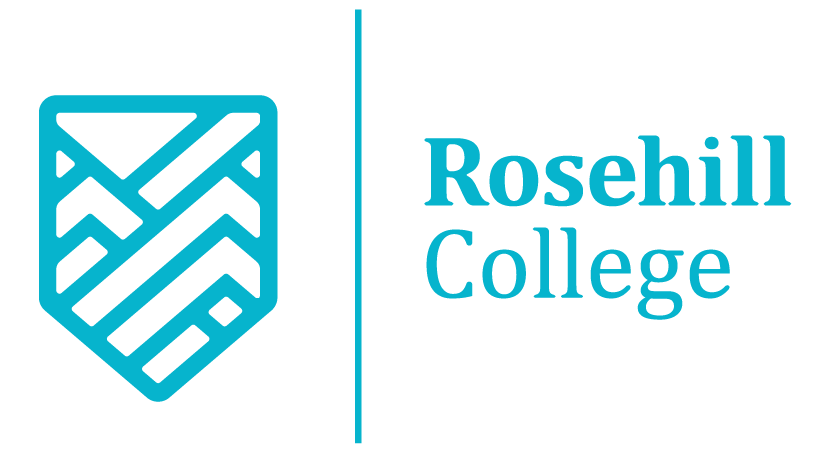CHC50121
Diploma of Early Childhood Education and Care
The Diploma of Early Childhood Education and Care at Rosehill College prepares educators to design and implement curriculum in regulated care services. Graduates may work in long day care, family day care, pre-schools, or kindergartens.

Course Overview
The CHC50121 Diploma of Early Childhood Education and Care at Rosehill College prepares students to become leaders in the early childhood education sector. This program focuses on developing advanced skills in creating and implementing educational programs that support the holistic development and wellbeing of young children. Students will learn to design inclusive and safe learning environments, foster creativity and positive behavior, and ensure compliance with legal and ethical standards in early childhood settings.
Key Features
- Advanced Curriculum: A comprehensive mix of core and elective units that cover all aspects of early childhood education and care, including curriculum design, environmental responsibility, and partnership with families.
- Practical Placements: Includes 280 hours of hands-on work placement, allowing students to apply theoretical knowledge in real-world early childhood education settings.
- Focus on Leadership and Professional Practice: Emphasizes the development of leadership skills and professional practice, including reflective practices and managing team effectiveness.
Career Outcomes
- Lead Educator in Early Childhood Settings
- Family Day Care Coordinator
- Early Childhood Program Director
Graduates are well-prepared to take on senior roles in the early childhood education sector or to pursue further studies and career opportunities in related fields. This course is perfect for those who are passionate about leading and innovating in the care and education of young children.
Course Sector
- Sector: Vocational Education and Training (VET)
- CRICOS Course Code: 115439B
- Course Level: Diploma
- Course Language: English
- Duration: 104 weeks
Are you a Domestic student or International student?
Entry Requirements
To enroll in the CHC50121 Diploma of Early Childhood Education and Care, applicants must meet the following criteria:
- Age: Be at least 18 years of age.
- Course Entry Interview: Participate in a course entry interview to determine suitability for the course and assess individual student needs.
- Language, Literacy, and Numeracy: Demonstrate sufficient language, literacy, and numeracy skills by completing a language, literacy, and numeracy assessment. Students must achieve ACSF Level 3 in reading, writing, numeracy, and oral communication.
- Academic Requirement: Hold either:
- CHC30121 Certificate III in Early Childhood Education and Care, or
- CHC30113 Certificate III in Early Childhood Education and Care.
These requirements ensure that students are adequately prepared for the academic and practical demands of the diploma program.
Entry Requirements
To enroll in the CHC50121 Diploma of Early Childhood Education and Care, international applicants must meet the following criteria:
- Age: Be at least 18 years of age.
- Course Entry Interview: Participate in a course entry interview to determine suitability for the course and assess individual student needs.
- English Language Proficiency:
- IELTS: Must have an overall score of 6.0 with no band less than 5.5.
- Alternative Evidence of English Competence:
- Documented evidence of being educated for 5 years in an English-speaking country; or
- Successful completion of an English Placement Test at IELTS level 6.0.
- PTE: Minimum score of 58.
- TOEFL (internet-based): Minimum score of 78.
- Cambridge English: Advanced: Minimum score of 176.
- Other English Language Tests: Students must provide test results to confirm equivalence to IELTS 6.0
- Academic Requirement: Must hold either:
- CHC30121 Certificate III in Early Childhood Education and Care, or
- CHC30113 Certificate III in Early Childhood Education and Care.
- Student Visa Requirements: Must meet the requirements for the Student Visa (Subclass 500), including:
-
- Genuine Temporary Entrant (GTE) Requirement: Demonstrate that you are a genuine student intending to stay in Australia temporarily for study purposes.
- Financial Capacity: Show that you have sufficient funds to cover tuition fees, living expenses, and travel costs.
- Overseas Student Health Cover (OSHC): Maintain health insurance for the duration of your stay in Australia.
- Health Requirements: Meet health standards as specified by the Australian Government.
- Character Requirements: Provide evidence of good character, which may include police certificates.
Fees and Charges
- Tuition Fee:
- $AU 10,800 (if you are outside Australia)
- $AU 9,200 (if you are in Australia)
- $AU 10,800 (if you are outside Australia)
- Materials Fee: $AU300/ year
Application Process
Course Details
- BSBTWK502: Manage team effectiveness
- CHCECE041: Maintain a safe and healthy environment for children
- CHCECE042: Foster holistic early childhood learning development and wellbeing
- CHCECE043: Nurture creativity in children
- CHCECE044: Facilitate compliance in a children’s education and care service
- CHCECE045: Foster positive and respectful interactions and behaviour in children
- CHCECE046: Implement strategies for the inclusion of all children
- CHCECE047: Analyse information to inform children’s learning
- CHCECE048: Plan and implement children’s education and care curriculum
- CHCECE049: Embed environmental responsibility in service operations
- CHCECE050: Work in partnership with children’s families
- CHCPRP003: Reflect on and improve own professional practice

- BSBHRM413: Support the learning and development of teams and individuals
- CHCECE051: Promote equity in access to the service
- CHCECE053: Respond to grievances and complaints about the service
Assessment Methods
-
Written Quizzes:
Assess students’ understanding of theoretical concepts covered in the course through multiple-choice questions, short answers, or essays. -
Projects and Portfolios:
Require students to apply their knowledge and skills by completing practical projects and compiling evidence of their work in a portfolio. -
Role Plays and Simulations:
Evaluate students’ ability to apply theoretical knowledge in real-world scenarios through role-playing activities and simulations. -
Presentations:
Students demonstrate their understanding of specific topics by delivering presentations, either individually or as part of a group. -
Practical Demonstrations:
Assess students’ practical skills in a controlled environment, often during their work placement, where they demonstrate their competency in specific tasks. -
Workplace Assessments:
Conducted during the work placement component, these assessments evaluate students’ ability to perform in a real-world early childhood education setting.
Delivery Mode
-
Online Learning:
Engage with interactive online resources and participate in virtual classrooms, allowing students to study flexibly and access course materials at their convenience. -
Face-to-Face Classes:
Attend on-campus sessions with experienced trainers, providing direct interaction, hands-on learning opportunities, and in-depth discussions. -
Practical Placements:
Complete 280 hours of work placement in early childhood education settings, applying theoretical knowledge in real-world environments and developing essential practical skills.
Work Component
Students enrolled in the CHC50121 Diploma of Early Childhood Education and Care are required to complete 360 hours of work placement in a regulated early childhood education setting. This component is designed to:
- Apply Theoretical Knowledge: Students will have the opportunity to put into practice the theories and concepts learned during their studies.
- Develop Practical Skills: Gain hands-on experience in tasks such as curriculum planning, managing children’s behavior, and ensuring a safe and inclusive environment.
- Meet Industry Standards: Work placements are conducted in environments that adhere to the industry standards and regulations, providing students with relevant and current experience.
- Receive Supervised Training: Students will be supervised by experienced professionals who will guide and assess their performance throughout the placement.
The work placement component is an essential part of the course, ensuring that students are well-prepared for their future roles in early childhood education and care.
Pathways
Employment Pathways
Upon successful completion of the CHC50121 Diploma of Early Childhood Education and Care, graduates are equipped to pursue various career opportunities in the early childhood education sector, including:
- Lead Educator in Early Childhood Settings
- Family Day Care Coordinator
- Early Childhood Program Director
- Preschool Assistant Director
These roles involve overseeing the care and education of young children, designing and implementing educational programs, and ensuring compliance with regulatory standards.
Further Education Pathways
Graduates may also choose to advance their education and career by pursuing further studies, such as:
- Bachelor of Early Childhood Education
- Bachelor of Education (Early Childhood)
- Graduate Diploma in Early Childhood Education
These further education options provide a pathway to more advanced positions in the field, such as early childhood teacher, educational consultant, or center director, and can lead to increased responsibility and leadership roles within early childhood education settings.
Student Growth Stories
Intake Dates
2024
- 26 August 2024
- 14 October 2024
- 25 November 2024
2025
- 13 January 2025
- 24 February 2025
- 14 April 2025
- 26 May 2025
- 14 July 2025
- 25 August 2025
- 13 October 2025
- 24 November 2025
2026
- 12 January 2026
- 23 February 2026
- 13 April 2026
- 25 May 2026
- 13 July 2026
- 24 August 2026
- 12 October 2026
- 23 November 2026
2027
- 11 January 2027
- 22 February 2027
- 12 April 2027
- 24 May 2027
- 12 July 2027
- 23 August 2027
- 11 October 2027
- 22 November 2027
Apply in 3 easy steps
Prepare
Read through the admissions criteria and ensure you meet the entry requirements.
Apply
Apply online or contact us to assist with your application
Offer
We’ll contact you to confirm the details and help you through the rest of the process.

